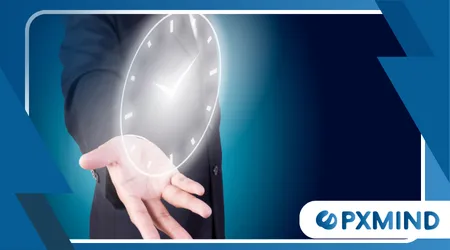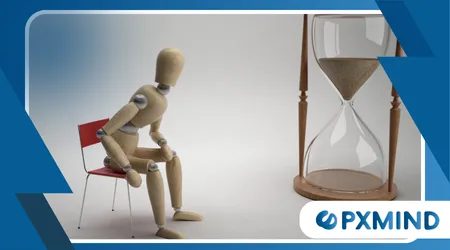Come gestire la tua energia invece del tuo tempo

Gestisci la tua energia invece del tuo tempo. Per decenni ci è stato detto che il tempo è la nostra risorsa più preziosa. Siamo diventati padroni del calendario, programmando ogni minuto della nostra giornata.
Annunci
Ma cosa succederebbe se il vero segreto della produttività non fosse trovare più cose da fare, ma ottimizzare il proprio potere personale?
A gestisci la tua energia invece del tuo tempo rappresenta il definitivo cambiamento di paradigma per la vita moderna.
Significa andare oltre una semplice lista di cose da fare e un programma rigido, e concentrarsi invece sulla qualità della propria attenzione e presenza in ogni dato momento.
Il suo approccio riconosce che la nostra capacità di agire cambia nel corso della giornata e che, rispettando questi ritmi naturali, possiamo raggiungere prestazioni ottimali.
La ricerca incessante della gestione del tempo porta spesso al burnout. Ci sforziamo di portare a termine i nostri compiti, indipendentemente dal nostro stato mentale o fisico, semplicemente perché l'orologio segna l'ora.
Questo metodo ci tratta come macchine, capaci di produrre la stessa qualità di lavoro a tutte le ore.
Ma non siamo macchine; siamo sistemi biologici complessi con livelli fluttuanti di energia, creatività e forza di volontà.
La vera efficacia deriva dal riconoscere queste fluttuazioni e dall'allineare i nostri compiti più impegnativi con i nostri livelli di energia più elevati.
Pensa alla tua energia come a una risorsa finita, una batteria che si esaurisce e si ricarica. Comprendendo questo, puoi fare scelte più intelligenti su come usarla.
I quattro pilastri della gestione energetica
Una gestione efficace dell'energia si basa su quattro pilastri fondamentali: energia fisica, emotiva, mentale e spirituale.
Ognuno di questi pilastri contribuisce alla tua capacità e alle tue prestazioni complessive. Trascurarne uno significa indebolirli tutti.
Energia fisica: il fondamento della produttività
L'energia fisica è il pilastro più fondamentale.
È il carburante che alimenta tutto il resto. Non si tratta solo di andare in palestra; sono importanti anche la qualità del sonno, l'alimentazione e le pause.
Ad esempio, dormire male la notte può compromettere la lucidità mentale e la resilienza emotiva per tutto il giorno successivo.
Per saperne di più: Produttività senza burnout: trovare l'equilibrio
Quando si è fisicamente esausti, anche i compiti più semplici sembrano monumentali. Al contrario, un corpo ben riposato e adeguatamente alimentato è un potente motore per il successo.
Il modo in cui ci alimentiamo ha un impatto diretto sul nostro stato mentale e fisico.
Ad esempio, una dieta ricca di zuccheri raffinati può provocare picchi e crolli di energia, rendendo impossibile mantenere una concentrazione costante.
Dando priorità ad alimenti ricchi di nutrienti, mantenendosi idratati e praticando regolarmente attività fisica, si creano solide basi per prestazioni elevate.
Prova a fare una passeggiata di cinque minuti ogni ora. Questo semplice gesto può aumentare notevolmente la tua concentrazione e la tua creatività, interrompendo i periodi di sedentarietà e stimolando la circolazione.

Energia Emotiva: La Qualità delle Nostre Interazioni
L'energia emotiva determina il nostro umore, la nostra mentalità e la nostra capacità di entrare in contatto con gli altri. Si tratta di avere il controllo delle proprie emozioni, piuttosto che lasciare che siano loro a controllare noi.
Le persone con una forte energia emotiva sono spesso ottimiste, resilienti e capaci di vedere opportunità nelle sfide.
Sanno gestire lo stress senza sentirsi sopraffatti e riescono a mantenere un atteggiamento positivo anche nelle situazioni difficili.
Leggi qui: Strumenti di produttività che funzionano davvero: una revisione scientifica
Pensa all'energia emotiva come al clima emotivo della tua vita. Trascorri del tempo con persone che ti prosciugano o con quelle che ti risollevano?
Ti stai dedicando a compiti che ti piacciono davvero o stai trascinandoti per una giornata piena di ansia?
Imparare a stabilire dei limiti, dire "no" agli impegni estenuanti e cercare relazioni e attività positive sono fondamentali per mantenere un alto livello di vitalità emotiva.
Energia mentale: il potere della concentrazione
L'energia mentale è la capacità di mantenere l'attenzione, pensare in modo critico ed essere creativi. Questa è l'energia più direttamente legata al nostro lavoro.
Spesso crediamo di poter svolgere più attività contemporaneamente in modo efficace, ma la ricerca dimostra che non è così.
Un famoso studio del 2013 pubblicato nel Rivista di psicologia sperimentale hanno scoperto che il cambio di attività, o "multitasking", può ridurre la produttività fino a 40% e aumentare il tempo necessario per completare un'attività fino a 50%.
Lo sforzo continuo di spostare l'attenzione esaurisce rapidamente la nostra energia mentale.
Per conservare e sviluppare l'energia mentale, pratica il single-tasking. Dedica blocchi di tempo ininterrotti ai tuoi compiti più importanti.
Questo non significa che devi lavorare per ore di fila. Significa che dovresti concentrarti su una cosa, e una sola, in un intervallo di tempo dedicato.
Un ottimo modo per visualizzarlo è usare la tecnica del pomodoro, in cui si lavora per 25 minuti e poi si fa una pausa di 5 minuti.
Questo approccio ciclico previene il burnout e mantiene attive le facoltà mentali.
Energia spirituale: trovare il tuo scopo
L'energia spirituale non ha a che fare con la religione; riguarda la connessione con il tuo scopo e i tuoi valori. È la forza trainante che dà senso ai tuoi sforzi.
Quando senti un forte senso di scopo, il tuo lavoro non sembra un compito ingrato; sembra una vocazione. Questa è l'energia che ti spinge ad andare avanti quando tutto il resto sembra difficile. È il "perché" dietro a ciò che fai.
++ Come ingannare il cervello e fargli apprezzare il tempo dedicato allo studio
L'energia spirituale può essere coltivata attraverso varie pratiche, dal trascorrere del tempo nella natura alla riflessione sui propri obiettivi a lungo termine.
Si tratta di capire cosa conta davvero per te e di assicurarti che le tue azioni quotidiane siano in linea con queste convinzioni fondamentali. Questo allineamento crea un profondo senso di appagamento e resilienza.

Applicazione pratica: spostare l'attenzione
Per efficacemente gestisci la tua energia invece del tuo tempo, inizia identificando i tuoi schemi energetici personali.
Sei una persona mattiniera, un nottambulo o hai una costante calma pomeridiana? Un semplice audit energetico può fornire informazioni preziose.
Nell'arco di una settimana, tieni traccia dei tuoi livelli di energia durante il giorno su una scala da 1 a 10. Nota quando ti senti più creativo, concentrato e motivato.
Tabella: Esempio di audit energetico settimanale
| Ora del giorno | Lunedi | Martedì | Mercoledì | Giovedì | Venerdì |
| 8:00 – 10:00 | 9 | 8 | 9 | 9 | 8 |
| 10:00 – 12:00 | 7 | 7 | 8 | 7 | 6 |
| 12:00 – 14:00 | 5 | 5 | 6 | 5 | 4 |
| 14:00 – 16:00 | 6 | 6 | 7 | 6 | 5 |
| 16:00 – 18:00 | 8 | 8 | 8 | 8 | 7 |
Questi dati riveleranno le tue ore di massima produttività. Allinea le attività più critiche e che richiedono maggiore concentrazione a questi periodi.
Ad esempio, se ti accorgi che la tua energia creativa è al massimo al mattino, programma le tue sessioni di brainstorming in quel momento.
Riserva le tue attività amministrative e le email per i periodi in cui hai meno energia nel pomeriggio. Ecco come gestisci la tua energia invece del tuo tempo in modo strategico.
È come un maratoneta che si regola da solo. Non corre per tutta la gara; riserva gli scatti di velocità per quando è più importante.
Oltre l'orologio: una vita con uno scopo e una presenza
Il passaggio dalla gestione del tempo alla gestione dell'energia è profondo.
Si tratta di vivere una vita più consapevole, in cui non ci si limita a reagire ai propri impegni, ma si plasma proattivamente la propria giornata per raggiungere risultati significativi.
Smetti di considerare la tua giornata come una serie di caselle da spuntare e inizi a vederla come un ecosistema da coltivare.
Questo approccio richiede una comprensione più profonda di sé e un impegno nella cura di sé.
Si tratta di capire che il nostro cervello non è fatto per essere sempre attivo. Proprio come la batteria di un telefono ha bisogno di essere ricaricata, il nostro cervello e il nostro corpo hanno bisogno di riposo per funzionare in modo ottimale.
Superare la stanchezza non è segno di dedizione; è la strada verso il burnout. Le persone di maggior successo lo capiscono.
Si prendono delle pause, danno priorità al sonno e si dedicano ad attività che li ricaricano. Non è pigrizia, è una mossa strategica.
Si rendono conto che per sfruttare al meglio il loro tempo, devono prima ottenere il massimo da se stessi.
A gestisci la tua energia invece del tuo tempo è una competenza fondamentale del leader e del pensatore moderno.
Perché ci aggrappiamo così tanto all'orologio, quando il nostro corpo sta chiaramente cercando di dirci qualcos'altro?
Il cambiamento di prospettiva non riguarda solo i dirigenti o gli atleti: riguarda tutti.
È rivolto al genitore che desidera essere presente con i propri figli, allo studente che ha bisogno di assorbire informazioni complesse e al creativo che ha bisogno di produrre un lavoro originale.
Per davvero gestisci la tua energia invece del tuo tempo è raggiungere una vita sostenibile, produttiva e, in definitiva, più appagante.
Considerazioni conclusive
Adottare questa nuova mentalità non significa diventare meno produttivi, ma più efficaci. Si tratta di lavorare in modo più intelligente, non più duro.
Prestando attenzione al tuo stato fisico, emotivo, mentale e spirituale, puoi creare una vita che sia al tempo stesso ricca di successi e profondamente appagante.
Non si tratta solo di un trucco per aumentare la produttività: è un approccio olistico alla vita.
Noterai un miglioramento significativo nella qualità del tuo lavoro, nelle tue relazioni e nel tuo benessere generale. È una filosofia per una vita ben vissuta.
Il mondo non rallenterà, ma puoi imparare a navigarlo con più grazia e potenza.
Per prosperare davvero nel mondo moderno, è essenziale passare da un approccio basato sul tempo a un approccio basato sull'energia.
Ecco come riappropriarti del tuo potere e costruire una vita che ti faccia sentire piena di vita e piena di significato. Gestisci la tua energia invece del tuo tempoe guarda la tua vita trasformarsi.
Domande frequenti
1. Cosa significa "gestire le proprie energie anziché il proprio tempo"?
Si tratta di un approccio alla produttività che si concentra sull'ottimizzazione del tuo livelli di energia fisica, mentale, emotiva e spirituale per portare a termine le cose, anziché limitarti a riempire la tua agenda di appuntamenti.
2. Come posso iniziare ad applicare questo principio alla mia routine?
Inizia con una settimana "audit energetico”, annotando quando ti senti più e meno energico. Quindi, programma le attività più impegnative per i periodi in cui hai più energia e quelle più leggere per i periodi in cui hai meno energia.
3. Gestire la mia energia significa che dovrei lavorare meno?
Non necessariamente. Significa lavorare più intelligenteAllineando i compiti ai tuoi livelli di energia, puoi completare il lavoro in modo più efficiente, ottenendo risultati migliori in meno tempo e con meno stress.
4. Quali sono i maggiori vantaggi di questo approccio?
I principali benefici includono una riduzione del burnout, un aumento della qualità del lavoro, una maggiore attenzione e concentrazione e un generale senso di benessere e controllo sulla propria vita.
